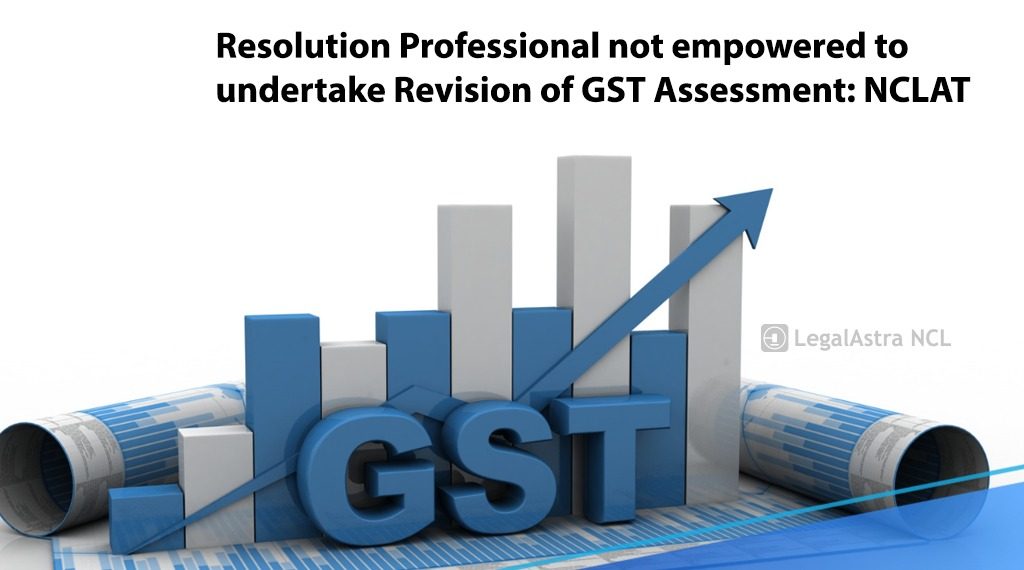The National Company Law Appellate Tribunal (NCLAT), Chennai Bench ruled that the
Resolution Professional (RP) is not empowered to undertake Revision of GST assessment.
The appellant, Bijoy Prabhakaran Pulipra is a Resolution Professional who has assailed the
NCLT’s order under Section 60(5) of the Insolvency and Bankruptcy Code, 2016 (IBC) holding
that there is no error in the Order. The Appellant has sought the clarification about
assessment of the GST amount payable by the Corporate Debtor.


Track your NCLT / NCLAT cases or orders in your apple iOS / Google Android smartphones. Available for free trial period of 15 days.
The Coram of Judicial Member Justice Venugopal M and Technical Member [V. P. Singh]
held that the Resolution Professional committed an error in exercising their power and
exercised the powers of GST Authorities, by way of Regulation 14 of the Insolvency and
Bankruptcy Board of India (Insolvency Resolution Process for Corporate Persons)
Regulations, 2016 (CIRP Regulations), which was not held to be sustainable.
The Tribunal observed that the Appellant revised the admitted claim of GST dues filed by
The State Tax Officer, SGS Tafter verification of the GST claims with Corporate Debtor’s
books. On account of this, the NCLAT remarked that the revision of the GST assessment
order was beyond the jurisdiction of the RP and the RP was not having the adjudicatory
power given by the GST Law.
The NCLAT further stated that any revision of assessment orders also cannot be made under
the pretext of Section 238 of IBC. Section 238 of IBC cannot be read as conferring any
appellate or adjudicatory jurisdiction in respect of issues arising under other statutes.
The NCLAT stated that the Committee of Creditors (COC) cannot exercise judicial power
under commercial wisdom and has no role in acceptance/rejection of the claim, the NCLAT
concluded that the NCLT had rightly considered the statutory provision and suggested filing
an Appeal before NCLAT. Furthermore, the said act of the RP is without jurisdiction and not
sustainable in law.
